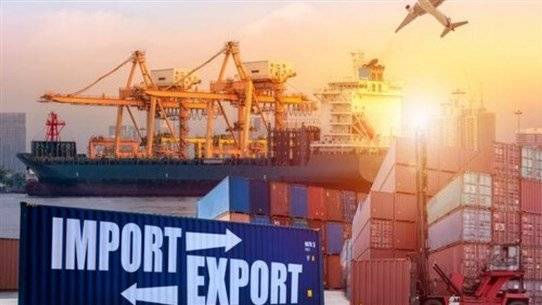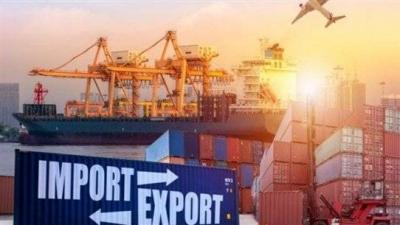The "best" gift that the Lebanese will receive after the parliamentary elections will come from the third signatory and former employee of the Governor of the Central Bank of Lebanon, Riad Salameh, namely Finance Minister Youssef Khalil. The minister proposes an increase in the customs dollar "based on the actual value that will be determined by the Cabinet based on the Finance Minister's proposal." Such a gift amounts to no less than a heavy burden on the Lebanese, costing them about 14 trillion Lebanese pounds if the customs dollar is set at 20,000 pounds.
Today, the Cabinet will hold a final session before the end of its term to discuss a 133-item agenda. Among the noteworthy items is item number seven, which includes a proposal from Finance Minister Youssef Khalil to increase the customs dollar. The title of the file presented to the council is "Collecting taxes and fees based on the actual value in Lebanese pounds currently reflected by the Sayrafa platform," while its content indicates that the Ministry of Finance proposes "collecting adequate taxes and fees, especially customs fees, based on the actual value in Lebanese pounds that will be determined by the Cabinet based on the Finance Minister's proposal."
This proposal was previously included as an item in the 2022 budget draft, sparking wide controversy, prompting political blocs to amend the wording of the proposed item to conceal the fact that it was merely a huge and unjustified tax increase. At that time, the political blocs, whether in the Cabinet or in Parliament, were afraid that approving such an item would erode their popularity and legitimacy, but the parliamentary elections freed them from this burden, allowing them to resume the aggression that imposes burdens on the middle and poor classes that should be borne by other segments of society. Today, this aggression is fueled by the relationship they have established with the International Monetary Fund, which has led to a "staff-level agreement" that includes other tax increases such as raising the value-added tax to 15%.
In practice, Khalil proposes to multiply the tax burdens on people many times over. Statistical studies conducted during the budget preparation that considered increasing the customs dollar indicated that adopting an exchange rate of 20,000 Lebanese pounds would inject additional revenues into the treasury through customs duties estimated at about 14 trillion pounds. These tax increases would cover gasoline, cars, spare parts, cigarettes, furniture, and clothing... the list is long, but it has been justified by claiming that food items are already exempt from customs duties and that importers have already raised prices, meaning that collecting customs duties from them will not unleash an inflationary wave. However, these justifications are notably superficial. The customs duties collected in 2020 amounted to 2.24 trillion pounds; multiplying this to 16.3 trillion pounds—an increase of 7.3 times—not only fails to prevent price inflation but will also create a wide incentive for smuggling and tax evasion, and will severely impact consumption like never before. Ultimately, consumers will pay a heavy price added to the burdens they have borne since the outbreak of the crisis until today. According to the Central Administration of Statistics, prices have inflated by 825% from the beginning of 2019 to March 2022. Food prices have risen by 3200%, clothing and footwear by 2720%, furniture and household equipment and maintenance by 3145%, and transportation by 2287%... This inflation continues to this day due to the ongoing depreciation of the exchange rate and covers items that have not been affected by inflation at the same rates as others. For example, a massive inflation in education costs, health (medical care and medications), telecommunications, and electricity is expected, meaning we are already facing significant inflation in the coming months that will feed the depreciation of the pound and will in turn be fueled by the rising dollar.
In general principle, increasing the customs dollar does not require a Cabinet decision or inclusion in the budget law. This is understandable under normal circumstances, but in crisis situations, such as the unprecedented crisis currently seen in Lebanon, increasing the customs dollar requires scrutiny. This government behavior in its last session, aimed at smuggling any possible items, suggests that the aim is to seek revenues after the parliamentary elections—that is, after the authority has lost its need for the votes of the general public. Increasing the customs dollar cannot be done in a context of multiple exchange rates, and can only be pursued within a comprehensive plan to address the crisis. It is meaningless for the dollar exchange rate to continue rising while the pound depreciates, as the government seeks to raise taxes through the customs dollar, because this means only one thing: accumulating losses on society and increasing the burdens on people is catastrophic under the current trajectory.
In practice, the customs dollar will be the only achievement of Najib Mikati's government (in all its components). This achievement relates to increasing the burdens on society arbitrarily in a country governed by immense historical disparities between those "above" and those "below." Such an increase, made carelessly and detached from any plan, means widening the gap of income and wealth inequality.
Mohamed Wahba - Al-Akhbar




